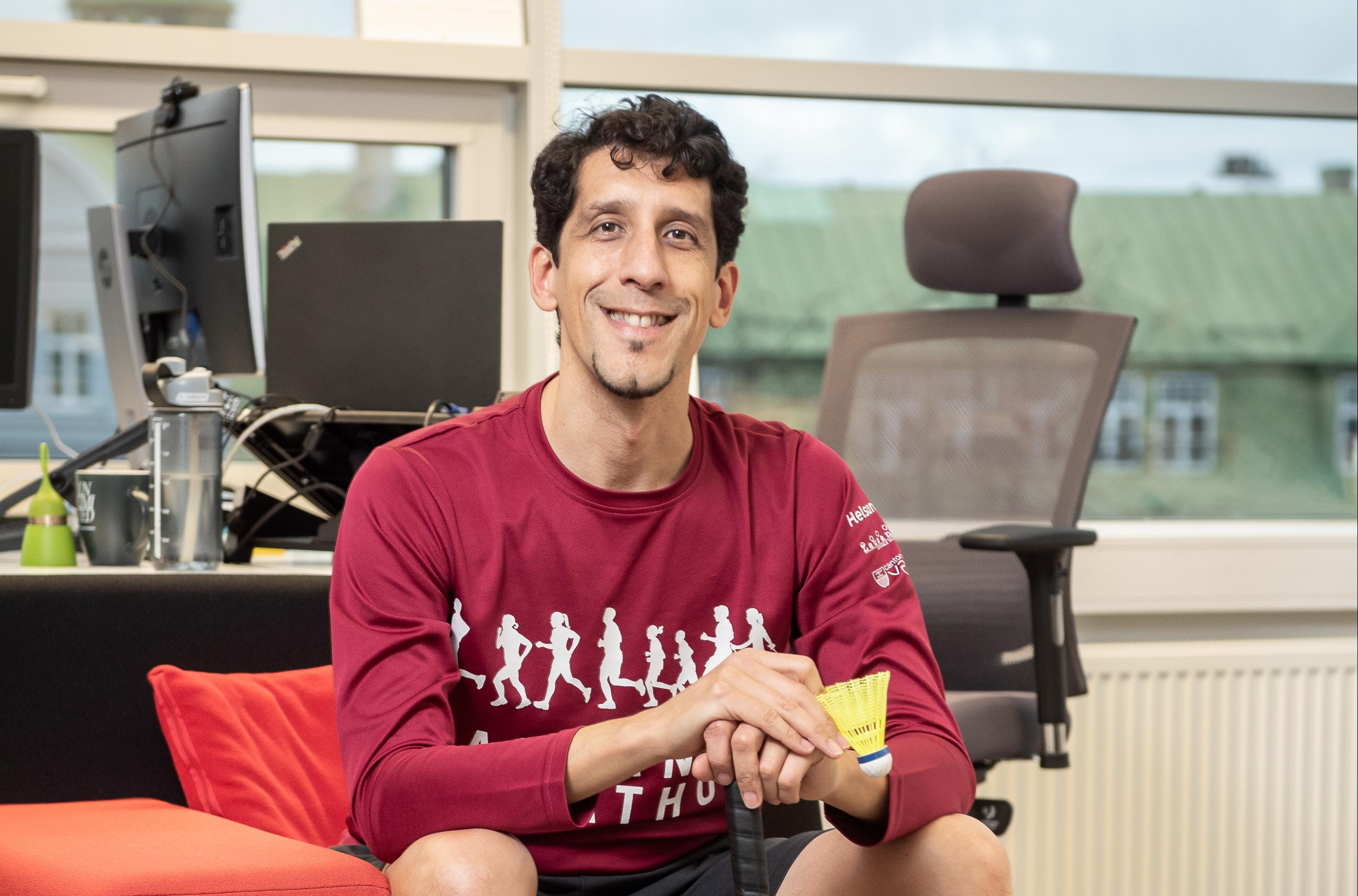TLU calender 2021: What’s up Senior Research Fellow Luis Pablo Prieto Santos?
TLU 2021 calendar’s focus researcher in July is the Senior Research Fellow Luis Pablo Prieto Santos. We will ask him what are his projects right now and how does he spend his free time.

What kind of researches and project are right now ongoing? What are the burning questions and topics?
With our colleagues at HTI and DTI and a great team of doctoral students, we are researching the field of "learning analytics" (in short, how to use computers to help us humans make sense and improve learning). One example is our "AI assistant" to help teachers understand whether secondary school students are collaborating effectively, and how to intervene to support them (whether they are in a real classroom or in "distance mode"). We even study how to support teachers, schools and university researchers working together to change their teaching and learning practices!
Lately, I'm also excited about the Erasmus+ DE-TEL project, where we work with nine other European partners to develop an interdisciplinary program and educational resources to train the next generation of doctoral students in our field, technology-enhanced learning (TEL).
But maybe what excites me the most is a collaboration we have with University of Valladolid (Spain) which brings both strands together: we are developing doctoral trainings and supporting technologies to help doctoral students (i.e., future researchers) develop their social-emotional skills and progress in their work towards finishing their dissertations.
What inspires You in life?
When I wake up in the morning, I'm inspired by the people I love: my partner, my family, and I feel grateful for the many friends I've met, from many different countries, over the years. Yet I'm also tremendously grateful for having the opportunity to work in a profession that allows me to pose questions, find answers in my own, often creative, ways and keep learning new things all the time.
On a different level, I'm also inspired by the adventure of supervising and trying to help doctoral students become independent researchers (for example, through my blog A Happy PhD, and workshops we do on similar topics). The interactions I have with students as they struggle to finish their theses both worries me (sometimes) and inspires me (most of the time) with their energy and motivation.
Besides science - do You have any hobbies or activities that does good for Your psychical and mental health?
Certainly! On the physical side, I regularly go running (slowly, to be honest) and do some weight lifting (quite light, if I'm still being honest :)). My energy quickly saps if I go many days without these. I also play some racket sports such as padel (a strange mixture of squash and tennis, popular in Spain) or badminton, which I sorely miss these last months since the pandemic started.
On the mental side, I have been practising mindfulness (both formal meditation and more informally) for quite some years now. It has made me less reactive and generally happier. I also try to integrate reflection, gratitude and other positive practices in my daily journaling and my periodic reviews (e.g., the classic three good things when I do a weekly review). I have found these critical to give me a sense of purpose, direction and to weather the storms and stresses of academic life.
And, on both sides, I'm a strong believer in the power of taking time off (as in, really-off-no-email-peeking off), having long conversations with friends over dinner, and taking even longer walks or hikes in nature.
What is Your opinion - where is science heading to?
If there is one upside to the pandemic, it is that science has become more prominent for many in society (remember the first months of the pandemic, when we all became amateur epidemiologists?). In a sense, it has also made my own field of research (learning technologies) suddenly jump to the foreground (even if it showed our weaknesses sometimes). How this will affect research in the future is hard to say: some fields (probably, biotech?) will get much more funding and may take huge leaps forward... I only hope it is not at the expense of the other fields. That is, that overall research spending also grows.
Yet, on a meta-level (thinking about the people that do the research), I am also worried by the recent studies claiming there's a "mental health crisis" in academia and research. The increasing demands, competition and the stagnant number of positions may be driving many of our researchers towards burnout and depression. To avoid that train wreck we will probably need multiple layers of action, from national and institutional measures, to more adequate wellbeing training, and our (i.e., researchers') own personal work as individual, lifelong learners. I'm hopeful we can reverse this trend!